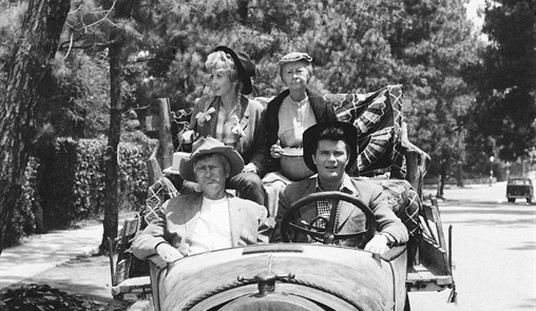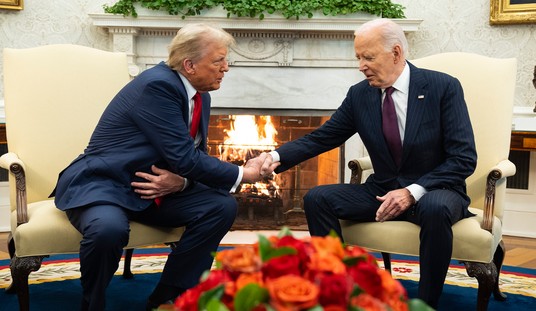Joe Biden’s May 6 speech to the European Parliament appears to have been largely ignored by the American media, both old and new. The full performance can be viewed below.
The video comes complete with images (at 0:18 of the clip) of Biden puffing out his chest as Beethoven’s “Ode to Joy,” the unofficial EU anthem, is played.
Biden and the president of the parliament, Jerzy Buzek, appear to believe that one is supposed to puff out one’s chest during the playing of the EU anthem, in the same way that one is supposed to put one’s hand over one’s heart during the playing of the American national anthem. Perhaps it is so. Green Party parliamentary leader Daniel Cohn-Bendit chatting amiably and chuckling during the playing of the anthem (0:34) is another nice touch. Americans in particular might notice that the chamber is only about half full at best. This is actually not a bad day at the European Parliament, which is renowned for its absenteeism.
The modest turnout of the euro-parliamentarians did not, however, prevent the vice president from praising the EU to the skies, even at the cost of seemingly running down his own country. The most notable passage in this respect is undoubtedly the following, which begins at 7:17 in the clip:
As you already know, ladies and gentlemen, … some American politicians and American journalists refer to Washington, D.C., as the capital of the free world. But it seems to me that in this great city, which boasts one thousand years of history, which serves as the capital of Belgium, the home of the European Union, and the headquarters of NATO, this city has its own legitimate claim to this title.
Biden goes on to describe Brussels as “the bastion of European democracy” (8:31) and to express wonderment at the fact that the U.S. Congress and European Parliament together “shape the laws for nearly one-eighth of the world’s population” (8:41).
The vice president is perhaps unaware that, as the German economist Roland Vaubel has put it, the European Parliament “is probably the only parliament in the world that does not have the right to propose legislation.” It may only propose amendments and reject legislation, and this it may only do in certain areas. The Lisbon Treaty has increased the areas of parliamentary “co-decision,” as it has been known.
At the same time, however, it has transferred more power from the member states, in which the elected parliaments discharge the classical role of a legislature, to the EU, in which the elected parliament does not. As the former Danish member of the European Parliament Jens-Peter Bonde has pointed out, the overall effect of the treaty is thus to increase the EU’s famous “democracy deficit,” not to decrease it.
In his speech, Biden made a pitch — if albeit a rather half-hearted one — for parliamentary support for a follow-up agreement to the EU-US SWIFT agreement. The original agreement had permitted American investigators to consult selected data on financial transactions originating from European banks as part of the Terrorist Finance Tracking Program. The agreement was rejected by the parliament in February, thus resulting in its annulment.
A major source — if not indeed the major source — of the EU’s “democracy deficit” is the remarkable lack of transparency of the political decision-making process and the concomitant lack of accountability of the decision-makers. One might think that the parliamentary vote on the SWIFT agreement, especially given the importance of the matter, would represent progress in this respect. But one should think again. As noted in my Pajamas Media report, the vote was held anonymously. Normally, this would be described as a secret ballot. But in the Orwellian nomenclature of the European Parliament, that term is reserved for a different procedure, in which an actual paper ballot is used. The secret electronic ballot is simply known as an “electronic vote.”
So much for Brussels, “the capital of the free world” and the “bastion of European democracy.”
Note: For Roland Vaubel’s discussion of the atypical character of the European Parliament, see his “The European Institutions as an Interest Group,” pp. 45-49; and for Jens-Peter Bonde’s analysis of the effects of the Lisbon Treaty in this regard, see his “From EU Constitution to Lisbon Treaty,” pp. 44-47.









Join the conversation as a VIP Member